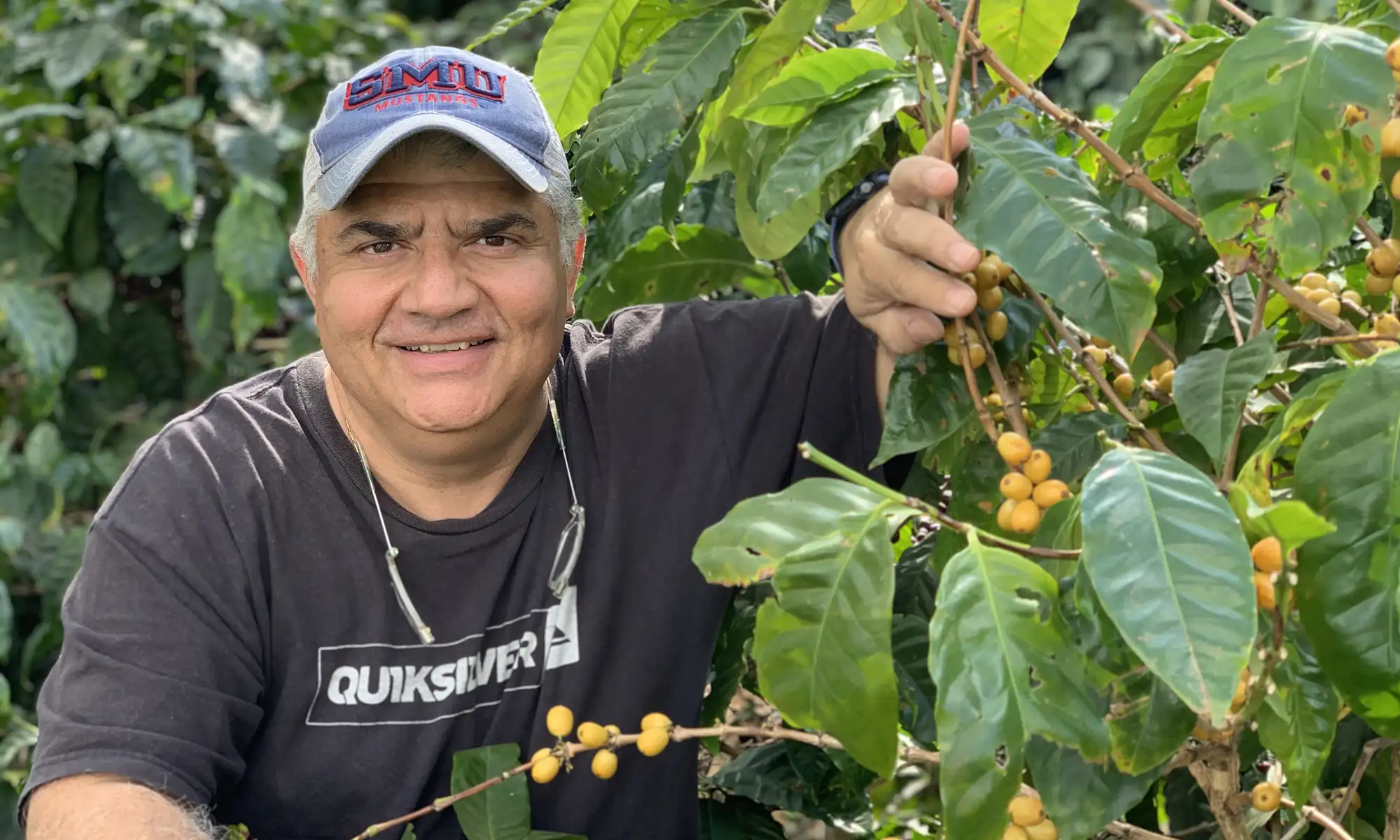El Salvador
Los Pirineos
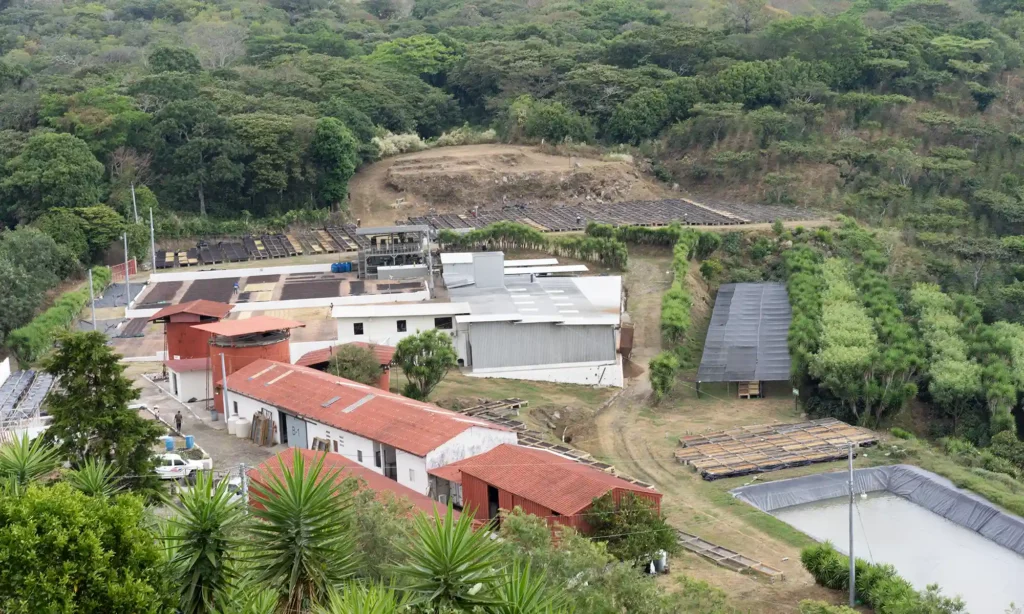
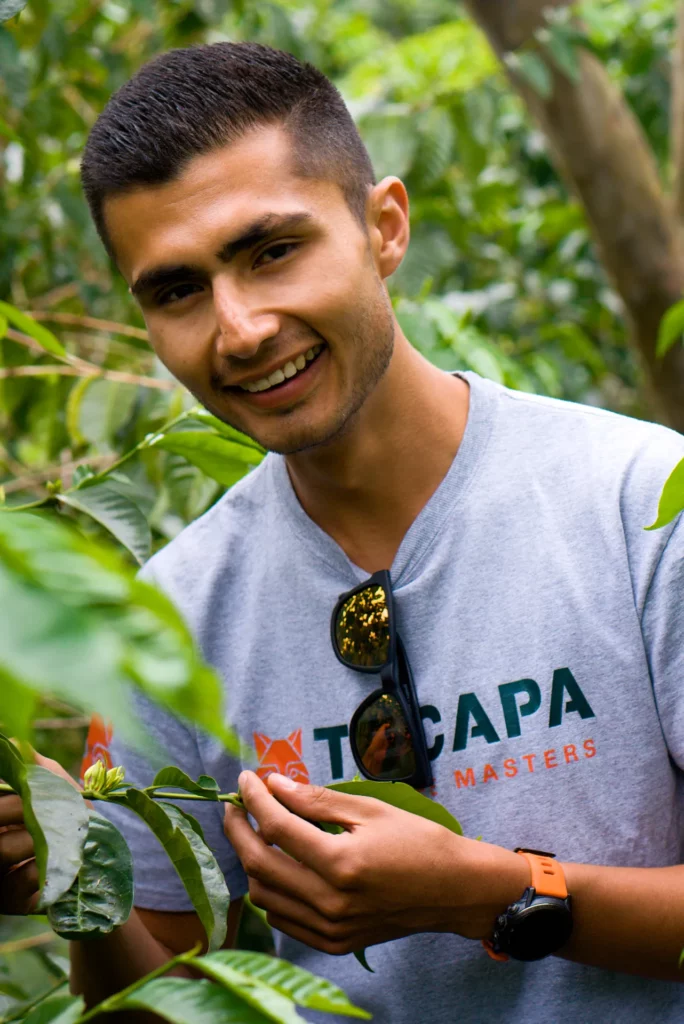
About Los Pirineos
Diego Baraona is 5th generation coffee farmer and took over his family farm in 2020 after his father, our dear friend and legendary coffee producer Gilberto Baraona passed away. Aged 25, Diego was living in Barcelona studying and building his own life when he lost his father. The sudden and unexpected death of Gilberto forced Diego to make a life choice. Either sell the coffee farm that had been in his family for 130 years or move back to El Salvador and become a coffee farmer. Fortunately Diego decided to continue working on his father’s and family legacy. He approached the task like he had nothing to lose and a lot to learn and quickly consulted with the existing team working on the farm, asking for their advice and loyalty. It is Diego’s humble approach that we believe has made him succeed in taking over his father’s project. Three years later, Diego has not only become a great coffee farm manager, he has also developed great skills as a coffee taster which has given him a better understanding on how he can manipulate the quality of the coffees he is producing. He has already refined a lot of the experimental processing techniques, initiated by his father and some of their coffee buying clients, and utilise the different techniques to make his coffees taste cleaner with flavours that are more “true to cultivar.”
Diego is also showing that he, like his father, is a visionary. He has clear plans and ideas on how he wants to develop the farm for the better in his lifetime. That is why we are confident that he will be producing some of the best coffees El Salvador has to offer in the years to come.
Farm location: Usulutan, El Salvador
The farm
Los Pirineos is located on top of the Tecapa volcano in Chinameca, Usulutan in El Salvador. It is over 150 hectares in size and the altitude ranges from around 1100 – 1400 meters above sea level. Over the years, Gilberto and now Diego Baraona have planted over 80 different cultivars of coffee on the farm that grows under partial shade from native shade trees. It goes without saying that a farm located at a volcano has rich volcanic soils and that is one of the reasons why the farm is so lush and fertile. Apart from the spectacular view from the farmhouse, the farm is probably most famous for its Pacamara coffee that has won several awards in the Cup of Excellence auction. However I started buying the coffees from this farm (First time at a cup of Excellence auction in 2010) because of the sweet flavour profile of the “Bourbon Elite” cultivar. Gilberto named his old bourbon trees “elite” as apparently they came from the original genetic material of Bourbon trees that came from Reunion Island many years back. Today the farm is producing 25 different cultivars, but Diego is planning to focus his production on his favourite cultivars such as Pacamara, Sudan Rume, Pink Bourbon (most likely an Ethiopian cultivar) and Bourbon Elite.
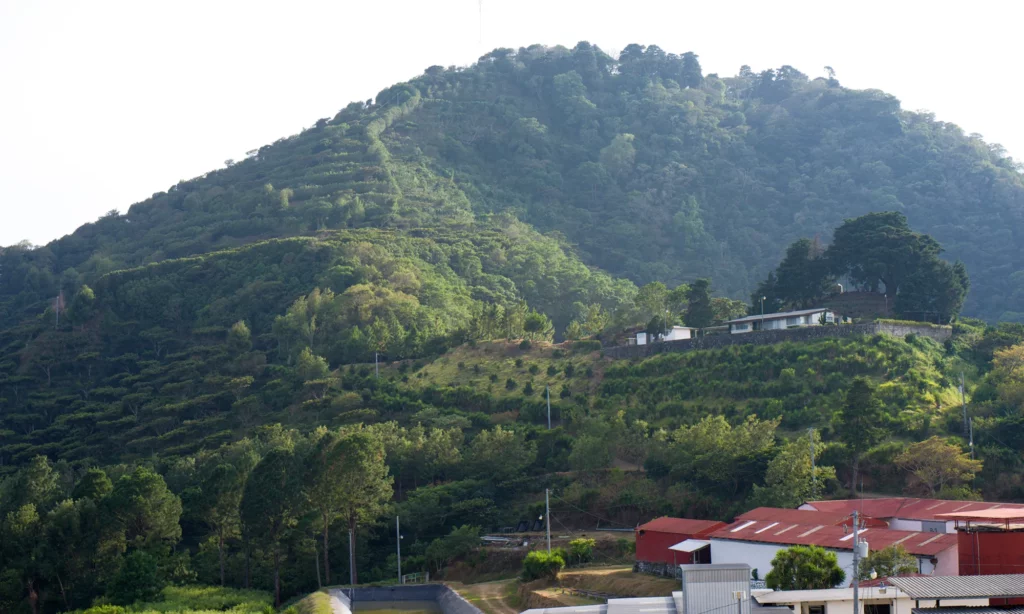
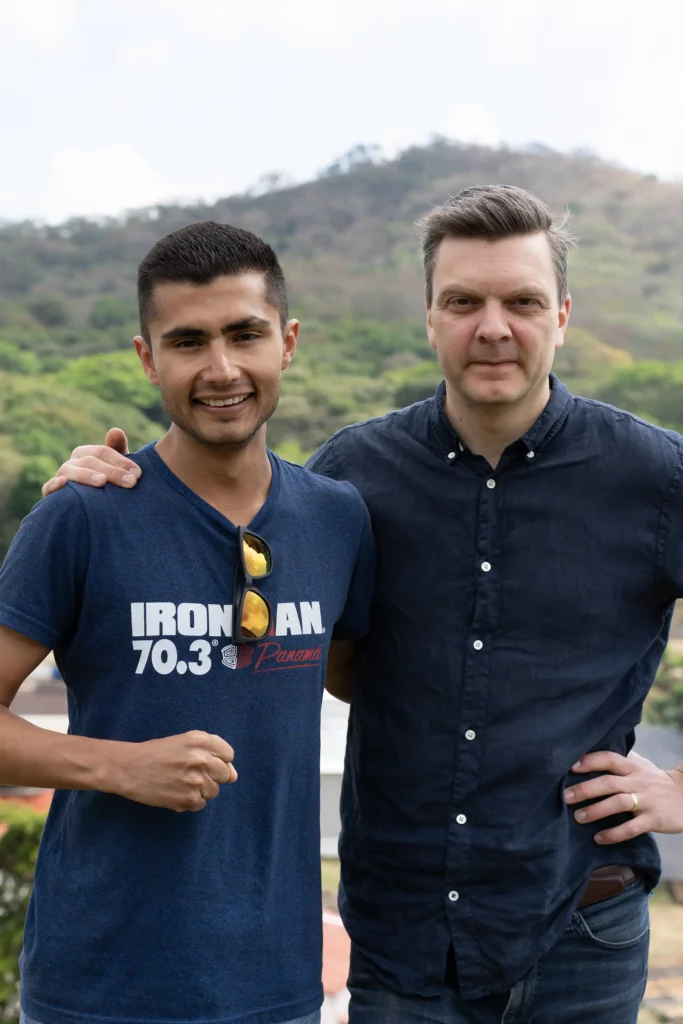
Team work
When Diego took over the farm operations after his father died, the farm was set up to be completely self sufficient and in complete control over all aspects from growing to exporting the coffees they produced. Diego has therefore organised the management of his farm into three different teams.
- The farm management team handles the agricultural aspects of producing coffee. This involves everything from planting and propagating coffee seeds, planting new coffee trees, pruning and taking care of the trees in the farm, fertilising, planting shade trees, weed control, etc. This team also manages the seasonal pickers that come to the farm each harvest to pick the coffee cherries.
- The mill management team handles both processing, drying and the preparation of the coffee for export. Diego sells to many clients around the world that have different preferences when it comes to how the coffees are processed and dried and prepared. For example, we always ask for semi-washed and honey processed coffees that are dried on raised beds under shade nets. The coffee must be free of defects, screen sorted to a certain specification depending on the cultivar we buy, and vacuum packed for export.
- Finally the “office team” located in San Salvador, handles all the accounting, the paperwork for exportation, the invoicing and shipment of samples.
Despite his young age, it is evident that Diego has built trust within his team and has done so by staying humble and trusting his team members. He employs a lot of local workers that live on and around the volcano on which the farm is located. By giving the workers a fair payment and good working conditions he is able to attract sufficient workers both in the harvest season and also “off season” where the farm needs manual labour and management. This is not only important to support the local community, but also important to be able to produce consistent high quality coffee as the workers are well trained and are familiar with the farm and its standards.
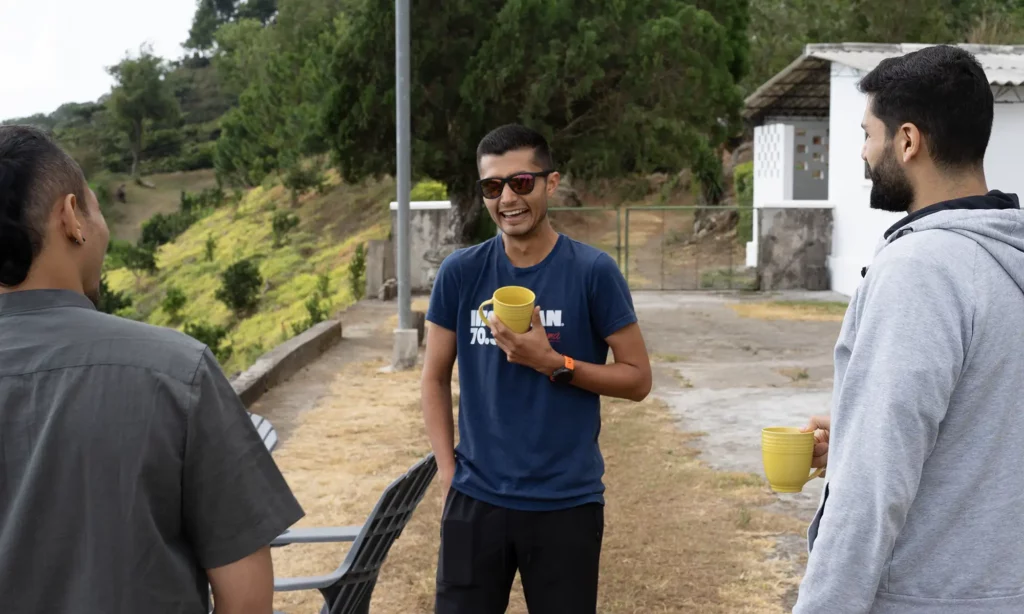
A Tour of Los Pirineos with Tim Wendelboe
Processing experts
One of the most impressive part about the farm is the processing and milling operations. During the harvest season you will see hundreds of raised beds surrounding the impeccably clean wet mill and dry-mill. Diego and his team are highly specialised in processing and drying coffees. They offer a wide range of different processes such as carbonic macerated (CM) coffees, natural and honey processed coffees as well as semi-washed coffees. (We say semi-washed as although the parchment coffee is still fermented, they are cleaned with a mechanical mucilage remover.) Diego has been forced to preserve as much water as possible on the farm because although they have a water basin that collects almost 4 million liters of rainwater every year, there is no other available water on the farm. This is one of the reasons why they produce a lot of natural- and honey processed coffees.
We primarily buy semi-washed and honey processed coffees from Diego as we always prefer coffees that have a cleaner and less fermented flavour profile. You can read more about how the coffees are processed in the section below.
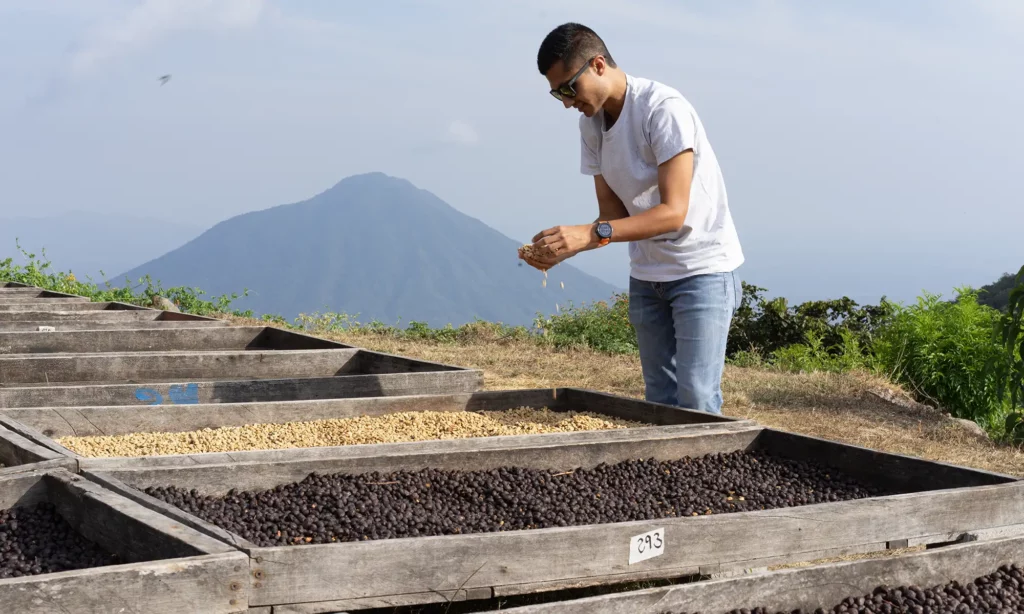
Picking & Sorting
All cherries are selectively picked by hand. Unripe and damaged cherries are removed by hand from the ripe cherries before processing.
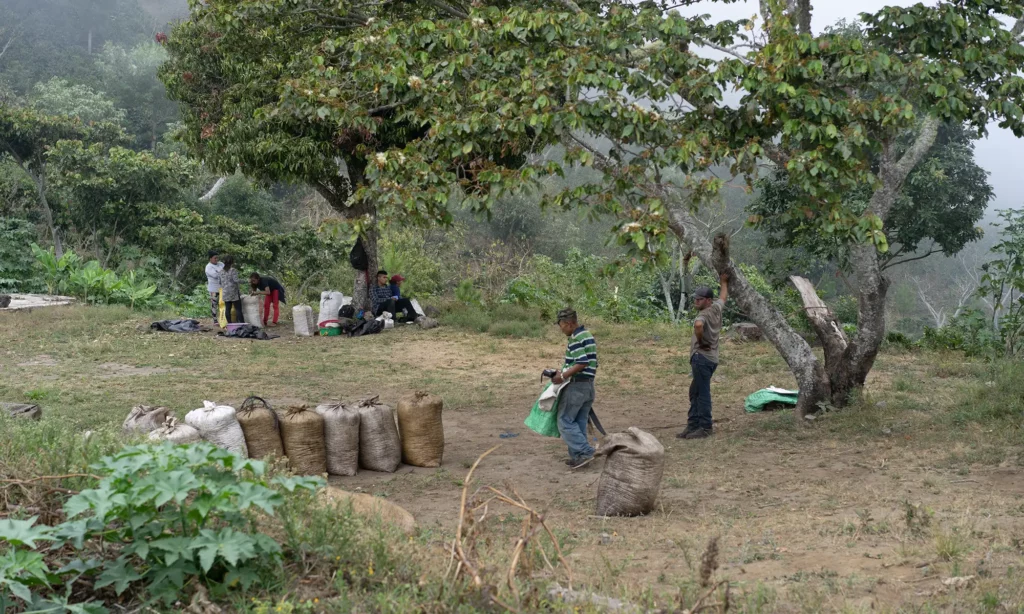

Depulping
Coffee cherries are de-pulped before they are either semi-washed or honey processed.
Semi-Washed
After de-pulping the parchment coffee with its mucilage on is fermented in tiled cement tanks or plastic barrels over night. After fermentation, the parchment is sent through a mechanical mucilage remover where about 90% of the mucilage is removed by friction and washed off with clean water. After washing the clean parchment coffee is immediately dried.

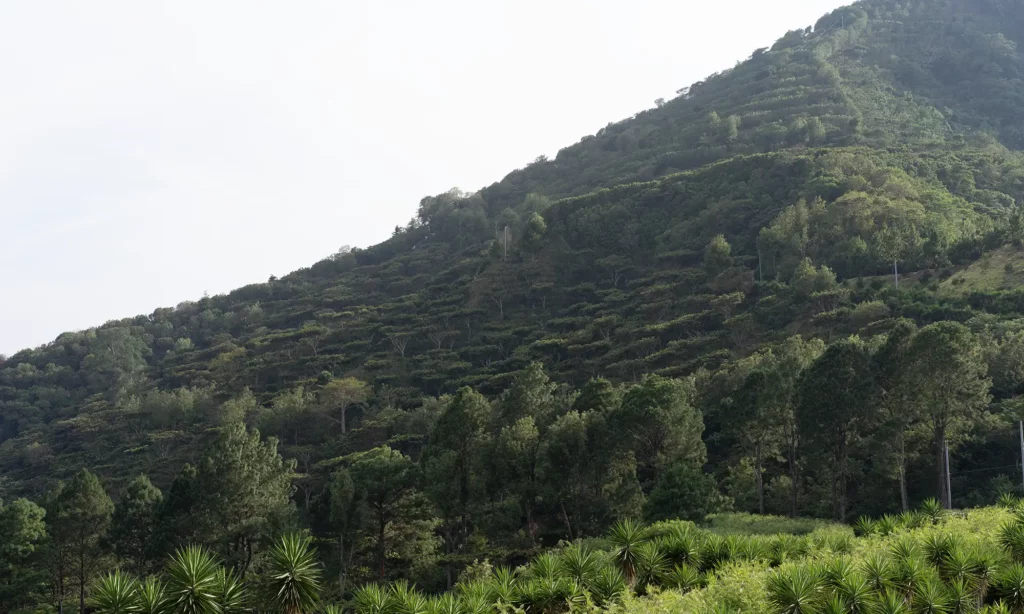
Honey Process
After de-pulping the parchment coffee with its mucilage on is either sent directly to the dryers and left to dry with the mucilage on or in some cases some mucilage is removed by a mechanical mucilage remover before the coffee is sent to the drying beds.
Drying
All the coffees we buy from Los Pirineos are dried on raised beds covered with shade nets. This prolongs the drying of the coffee and helps improve the shelf life of the coffee as well as giving it a cleaner cup. The coffees are always stored in airtight grain pro bags before they are milled and vacuum packed before shipping to Norway.

Gilberto Baraona
